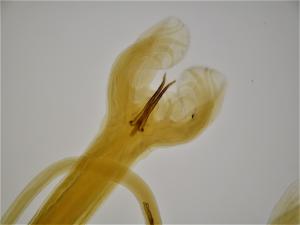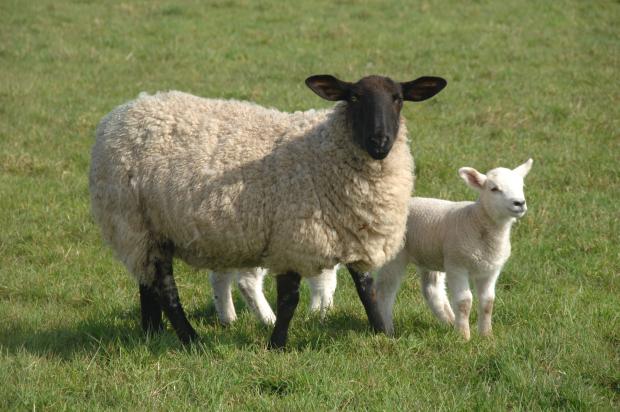AFBI warns about the risk of Haemonchus worm infection in sheep
Date published:
AFBI would like to make flock owners aware of the risks of infection with Haemonchus in sheep after the first case of the disease was recently diagnosed on post-mortem by the Disease Surveillance and Investigation Branch (DSIB) on an animal submitted from the west of the province.

Haemonchosis is an important gastrointestinal worm infection of sheep and goats of all ages in regions where conditions of high humidity coincide with high temperature.
Outbreaks of haemonchosis may occur in the summer months if rainfall is sufficient to enable the larvae to survive on pasture. The disease is only occasionally reported in Northern Ireland. However, global warming could mean that the incidence of haemonchosis might increase here. Last year, following the particularly wet conditions of mid-summer, an increase was seen in the number of cases of Haemonchus diagnosed by DSIB.

Anaemia due to blood loss is the usual cause of death in these cases, and it has been determined that each worm removes about 0.05ml of blood daily from its host, so a burden of 2,000 worms would result in a daily blood loss of 100ml.
Faecal egg counts on samples submitted to the laboratory from flocks where haemonchosis is suspected usually show high levels of strongyle-type eggs. However, since strongyle eggs cannot easily be differentiated on a species basis, except by advanced techniques which are not routinely applied, these counts represent the combined output of Cooperia, Haemonchus and Ostertagia/Telodorsagia infections. Low counts may be encountered if the majority of the worms are immature or if anthelmintic was administered recently.
In Northern Ireland, the source of Haemonchus infection in flocks is often bought-in sheep from an area where infection is more common, and due to the high reproductive potential of the worm it is likely that the pasture will rapidly become contaminated with Haemonchus eggs. Early-season anthelmintic dosing of replacement stock can help to reduce the risk of pasture contamination for naïve lambs, while careful attention to quarantine and dosing of bought-in stock is essential.
If worms persist in lambs, particularly after dosing with benzimidazole (‘white drench’), anthelmintic resistance may be an issue on the premises, and administration of moxidectin, together with an iron-containing tonic, may be advisable. Anthelmintic resistance is less problematic in areas such as Northern Ireland, where infection is encountered only sporadically, compared to the situation in warmer countries where Haemonchus infection is highly endemic.
Contact your local vet for advice if you are concerned about haemonchosis.
If you would like a post-mortem carried out on a suspect case, this can be undertaken at our Stormont or Omagh laboratories but should be arranged via your local vet who can advise on carcase submissions.
Notes to editors:
AFBI’s Vision is “Scientific excellence delivering impactful and sustainable outcomes for society, economy and the natural environment”.AFBI’s Purpose is “To deliver trusted, independent research, statutory and surveillance science and expert advice that addresses local and global challenges, informs government policy and industry decision making, and underpins a sustainable agri-food industry and the natural and marine environments”.AFBI’s core areas:Leading improvements in the agri-food industry to enhance its sustainability.Protecting animal, plant and human health.Enhancing the natural and marine environment.